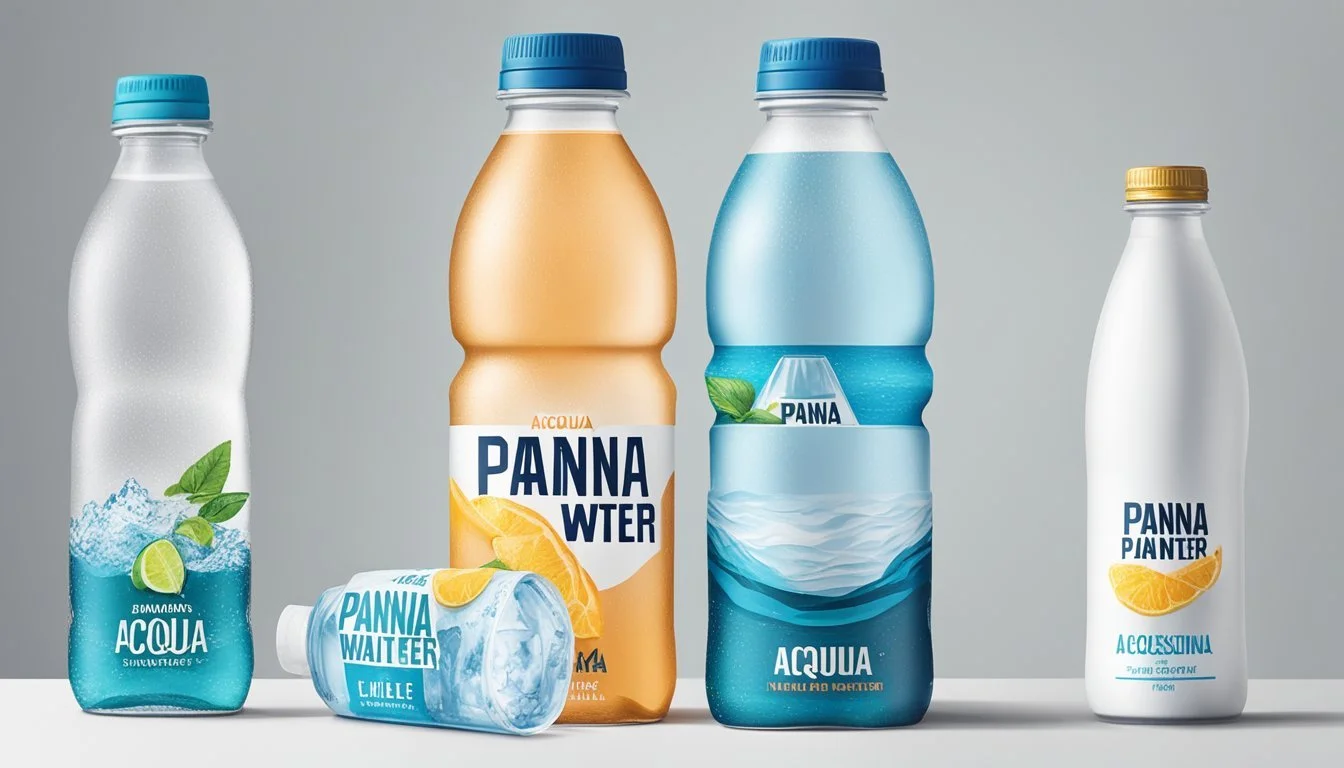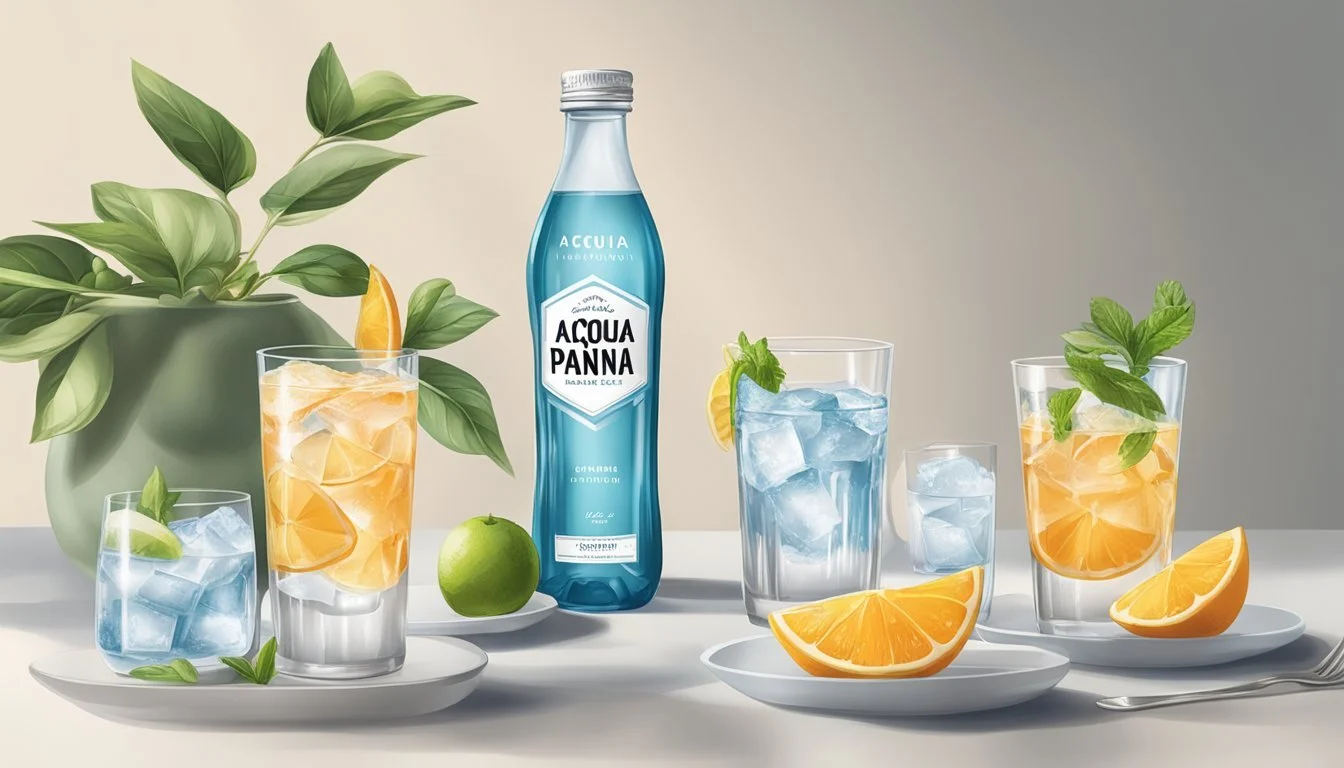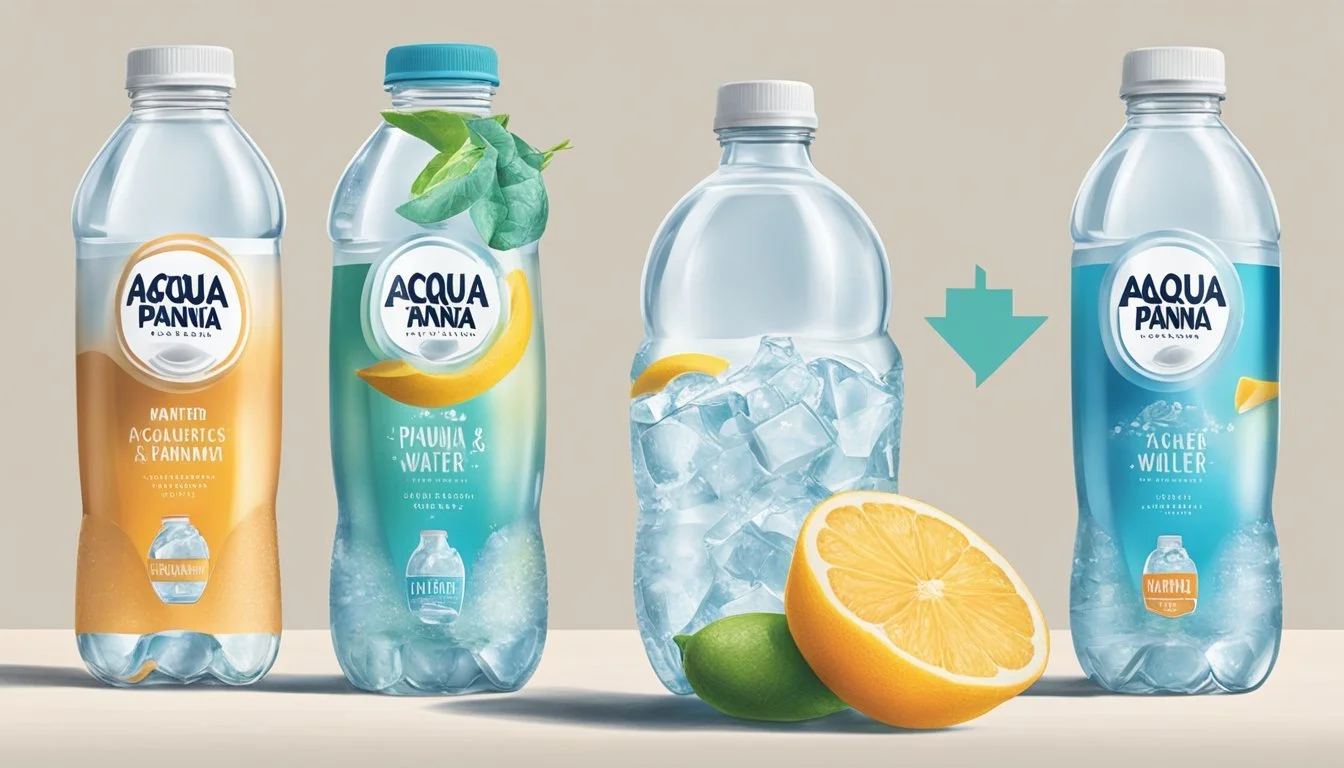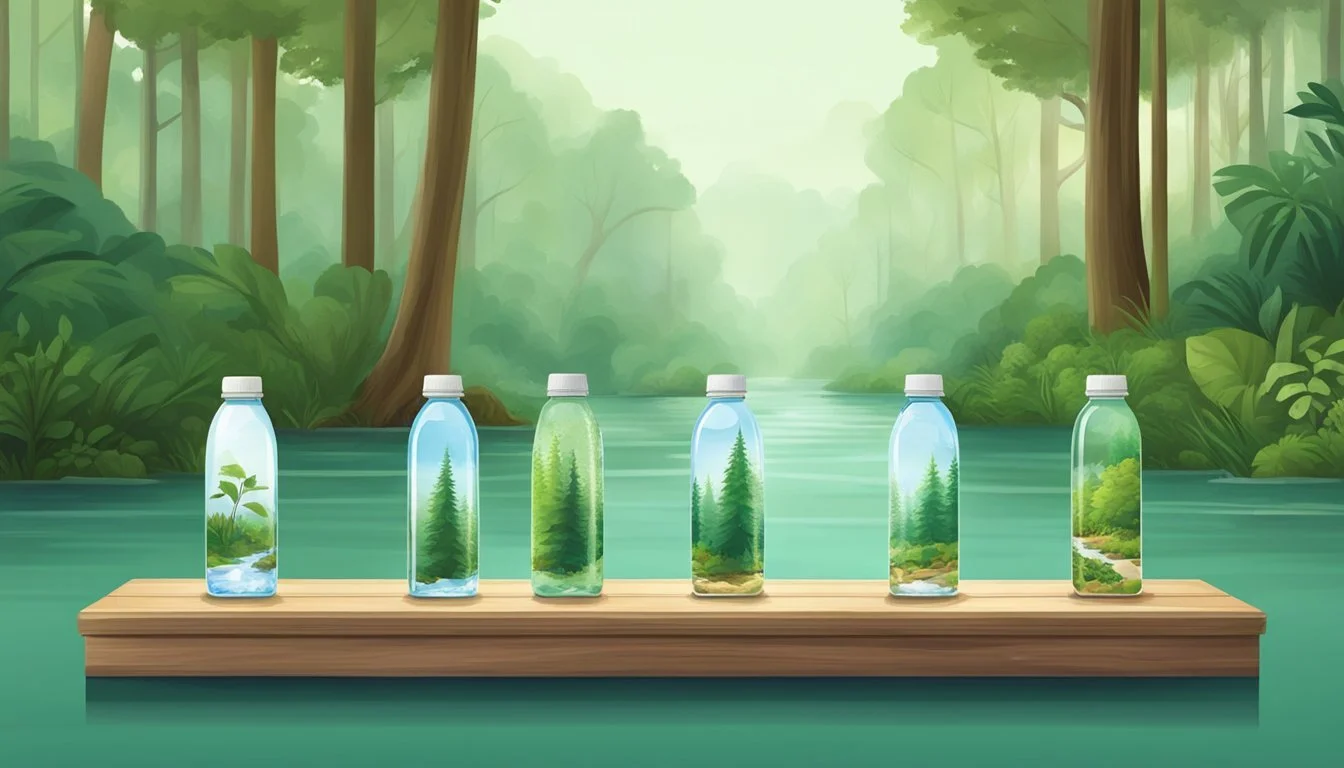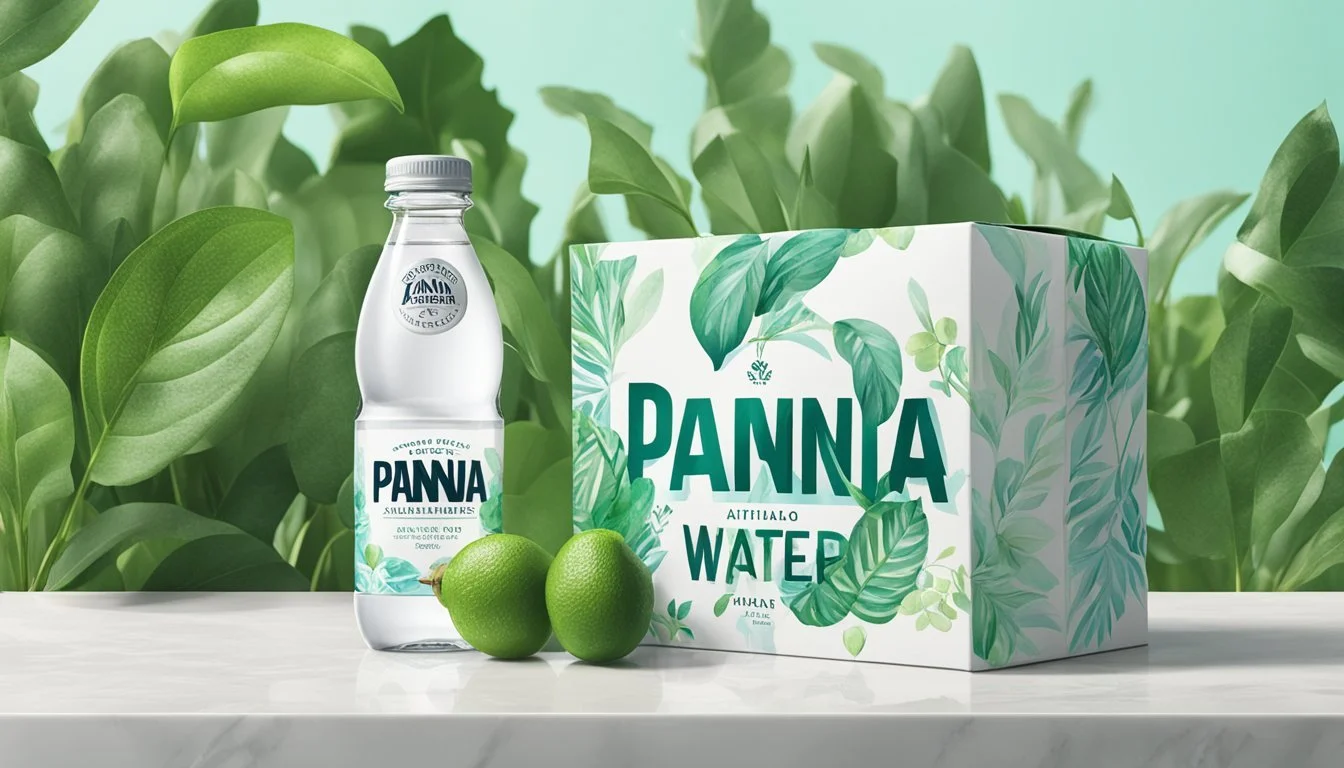Acqua Panna vs. Boxed Water
An In-Depth Comparison of Bottled Water Brands
When it comes to hydration, the choice of water source is a personal preference that has gained more attention with the expanding variety of options on the market. Acqua Panna Natural Spring Water, sourced from Tuscany and bottled without additional treatment, offers a soft and slightly alkaline taste that has been appreciated for centuries. Its filtration through the aquifer over a period of 13 years adds to its purity, making it a premium choice in the world of bottled water.
In contrast, Boxed Water presents an eco-friendly alternative with its carton-based packaging designed to reduce plastic waste. The concept behind Boxed Water is centered on sustainability and the belief that pure water shouldn't contribute to pollution. While the product's environmental impact is often a significant selling point, the purity and taste of the water itself are also important factors for consumers.
Consumers weighing these options must consider not just taste and source, but also the environmental implications of their purchase. While Acqua Panna boasts a long-standing reputation for quality, Boxed Water appeals to environmentally conscious consumers with its innovative packaging. The debate between the two is not only a matter of which water is better but also reflects broader values and priorities in society's choice of bottled water.
Understanding Bottled Water
When one discusses bottled water, it's imperative to consider variety, industry practices, and environmental implications. Each aspect influences consumer choice and perception in the market where numerous brands like Acqua Panna and Boxed Water compete.
Types of Bottled Water
Natural Spring Water: This type of water originates from an underground aquifer and flows naturally to the earth's surface. Acqua Panna is an example of natural spring water; it is sourced from Tuscany and is noted for its smooth taste derived from a 13-14 year journey through minerals.
Mineral Water: Unlike spring water, mineral water has a higher content of various minerals. These minerals, such as calcium and magnesium, are naturally occurring and must be present at the source.
Purified Water: Water from any source that is subjected to rigorous filtration processes, including distillation, reverse osmosis, or deionization, to remove impurities and contaminants.
Alkaline Water: This water has a higher pH level than tap water, typically achieved through a process called ionization. Brands like Essentia offer alkaline water, which is claimed to have a clean smooth taste.
Sparkling Water: Carbon dioxide is added to this water to create effervescence. Brands such as S.Pellegrino fall into this category, offering a bubbly alternative to still water options.
The Bottled Water Industry
The industry encompasses a vast array of brands and product types, reaching consumers worldwide. As of 2017, Essentia led as a prominent brand in the premium bottled water segment within natural foods retail channels.
Bottled Water Brands compete vigorously in a market that values purity, taste, and convenience. Brand narratives often emphasize the origin and journey of the water, as seen with Acqua Panna and its Tuscan heritage.
Environmental Impacts of Bottled Water
Packaging Materials: Most bottled water comes in plastic, which can have significant environmental ramifications. Boxed Water aims to mitigate this by using cartons that contain 74% paper, 1% aluminum, and 25% plastic for waterproofing and sealing.
Carbon Footprint: The transportation of bottled water from source to consumer adds to its environmental impact. Factors such as the distance the water travels and the method of transportation influence the product's overall carbon footprint.
Recycling and Waste: While some bottled water packaging is recyclable, not all of it is recycled properly. Improper disposal leads to plastic pollution, a severe and growing environmental concern.
Consumers are increasingly aware of these impacts and often factor them into their purchasing decisions. Brands that prioritize sustainability and environmental friendliness may appeal to environmentally-conscious consumers.
Comparing Acqua Panna and Boxed Water
In this section we'll compare Acqua Panna and Boxed Water in terms of their origins, water sourcing and filtration processes, commitment to sustainability, and the taste and quality of the water.
Brand Origins and Philosophy
Acqua Panna originates from Italy and boasts a heritage dating back to the Renaissance. It is positioned as a premium brand with a focus on its Tuscan roots and history. Boxed Water began in the U.S. with a philosophy centered on environmental consciousness, offering an alternative to plastic bottles by using recyclable cartons.
Source and Filtration Processes
Acqua Panna's water source is the serene hills of Tuscany, with natural filtration through limestone resulting in a smooth taste. No additional filtration processes are disclosed.
Boxed Water relies on municipal sources and utilizes an 8-step filtration that includes UV, carbon, and reverse osmosis treatments to ensure purity.
Packaging and Sustainability
Acqua Panna:
Packaging: Predominantly plastic bottles
Sustainability: Participates in recycling programs, with a commitment to reducing carbon footprint.
Boxed Water:
Packaging: 92% plant-based cartons, 100% recyclable
Sustainability: Plants trees for social media engagement, focuses on using renewable resources.
Water Taste and Quality
Acqua Panna is recognized for its soft, smooth taste without any discernible aftertaste. In contrast, Boxed Water is often described as having a neutral taste which some perceive as fresher due to its multi-step purification process. Quality control is a priority for both brands, ensuring a consistent product.
Health and Hydration
Choosing between Acqua Panna and Boxed Water for better health and hydration depends on the water's electrolyte content and pH levels. Both factors are essential to sustaining the body's balance.
Importance of Hydration
Hydration is crucial for maintaining health as it allows the body to function effectively. Every cell, tissue, and organ in one's body requires water to work properly. For instance, hydration helps to regulate body temperature, keep joints lubricated, and transport nutrients to give you energy. When considering bottled waters like Acqua Panna or Boxed Water, consumers should look for clean and contaminant-free options. Both brands meet the health standards, but mineral content can contribute differently to hydration levels and overall health.
Electrolytes and pH Levels
Electrolytes are minerals in body fluids that carry an electric charge and are vital for maintaining fluid balance within the body. They support nerve function and muscle contraction.
Acqua Panna: Known for its natural electrolytes and pH balance, this non-carbonated spring water can replenish electrolyte levels subtly. It usually has a pH level of about 8.0, which is mildly alkaline and can contribute to neutralizing the body's acidity.
Boxed Water: While not sourced from a natural spring, Boxed Water is purified and maintains a pH level that's close to neutral (around 7). It may contain fewer minerals compared to natural spring water, which affects its electrolyte content.
Understanding the significance of hydration and the role electrolytes and pH levels play can guide consumers to make informed decisions when choosing their bottled water for health and hydration benefits.
Consumer Considerations
When consumers are faced with choosing between Acqua Panna and Boxed Water, several factors come into play including pricing, taste, health concerns, and the setting in which the water is consumed.
Pricing and Accessibility
Acqua Panna:
Price: Typically priced as a premium product.
Availability: Found in many grocery stores, online retailers, and fine dining establishments.
Boxed Water:
Price: Generally less expensive than Acqua Panna.
Accessibility: Available in selected stores and online, with a focus on eco-friendly markets.
Choosing for Taste or Health?
Acqua Panna:
Taste: Known for its smooth and slightly mineral-taste due to its natural filtration through the Tuscan hills.
Health: Offers a good balance of minerals without added chemicals.
Boxed Water:
Taste: Described as pure and clean, with a neutral taste profile.
Health: Often marketed as a sustainable choice, with no additional health benefits overtly promoted.
Bottled Water in Fine Dining
Acqua Panna is often the brand of choice in fine dining restaurants due to its status as a premium Italian spring water and its historical association with gourmet food. Its elegant and sophisticated branding complements a high-end dining experience.
Conversely, Boxed Water may be less common in a traditional fine dining setting but is recognized for its environmental initiatives. Restaurants prioritizing sustainability might opt for Boxed Water as a statement of their commitment to ecological responsibility.
The Role of Water Sommeliers
In the nuanced industry of bottled waters, such as Acqua Panna and Boxed Water, water sommeliers play a pivotal role. A water sommelier's expertise lies in their ability to discern and categorize the subtle flavors and properties of water from different sources. Their training, often acquired in specialized programs across various countries, equips them with the knowledge to guide consumers and establishments in selecting appropriate water to complement dining experiences.
Water sommeliers assess the mineral content and its resultant taste profile, which can significantly differ between brands like Acqua Panna, with its mineral composition derived from a 13 to 14-year journey through the aquifer in Tuscany, and Boxed Water, which focuses on sustainability and a reduced carbon footprint.
Key Responsibilities:
Tasting and Assessing: Water sommeliers taste different waters, noting the minerality, pH level, and terroir—factors that affect a water's taste and mouthfeel.
Pairing with Dishes: They suggest water pairings that complement specific dishes, similar to wine pairings.
Educating Consumers: They provide insights into the distinct characteristics of various bottled waters.
Qualifications:
Training from accredited institutions such as the Associazione.
In-depth knowledge of water sources and processing methods.
Water sommeliers contribute to an elevated dining experience by highlighting the unique characteristics of bottled water like Acqua Panna and Boxed Water. Their role underscores the complexity and growing appreciation for this fundamental resource in culinary contexts.
Comparative Analysis of Other Brands
In this section, readers can find a comparative analysis of various bottled water brands categorized into premium, supermarket, and trend/niche markets. Each category offers different value propositions in terms of quality, source, and packaging.
Premium Brands
Evian and Fiji are often regarded as direct competitors to Acqua Panna in the premium bottled water segment. Evian's water, sourced from the French Alps, is known for its balanced mineral content and is typically sold in both plastic and glass bottles. Fiji water, on the other hand, boasts a unique mineral profile due to its origin in the volcanic rock of Fiji and is recognized for its soft, smooth taste.
Voss: Sourced from Norway, presented in stylish cylindrical glass bottles.
Smartwater: Vapor-distilled, with added electrolytes for a crisper taste.
Icelandic Glacial: Sourced from Iceland's legendary Ölfus Spring, offers a high pH for those seeking alkaline water.
Supermarket Brands
Supermarket brands like Poland Spring, Deer Park, Ice Mountain, and Zephyrhills provide a cost-effective alternative to premium waters while still delivering a quality product. These brands often highlight their local sourcing and natural filtration processes.
Mountain Valley: Spring water from the Ouachita Mountains, available in glass bottles.
Essentia: Ionized alkaline water found in grocery stores, popular for its high pH level.
Core Hydration: Purified water, balanced with electrolytes and minerals for taste.
Trend and Niche Brands
Trend and niche brands cater to specific consumer preferences and values, often focusing on unique selling points such as eco-friendliness, innovative packaging, or enhanced water benefits.
Liquid Death: Packaged in 100% recyclable tallboy cans, offering still and sparkling water.
LIFEWTR: Purified and pH-balanced water with added electrolytes, known for its artistic bottle designs.
Ethos Water: A socially responsible brand that supports water accessibility projects.
Path: Offers refillable aluminum bottles, promoting sustainability.
Eternal Water: Sourced from naturally protected springs in the USA, boasting naturally occurring electrolytes.
Environmental and Ethical Considerations
The debate between Acqua Panna and Boxed Water in the realm of environmental impact centers on packaging materials, waste management, and attempts to reduce carbon footprints. Consumers are increasingly considering these factors when choosing bottled water.
Recycling and Waste Handling
Acqua Panna uses glass and plastic bottles, both of which can be recycled. However, the efficiency of recycling systems and consumer participation significantly affect the actual rates of recycling. Glass, while heavy and potentially more costly in terms of transport emissions, can be recycled indefinitely.
Boxed Water touts a container made up of 92% plant-based material, positioning itself as a more sustainable alternative to traditional plastic bottles. Its main advantage lies in the higher renewable content of its packaging, assuming these plant-based materials are sourced and managed responsibly.
Carbon Footprint and Climate Impact
Calculating the exact carbon footprint of bottled water is complex, but it includes factors like production, transportation, and refrigeration.
Acqua Panna is an Italian brand, so its water is typically transported over greater distances to reach global markets, likely increasing its CO2 emissions.
While Boxed Water advertises a more environmentally friendly profile due to its packaging, it should be noted that the product's overall environmental impact also includes the footprint of the carton production process and shipping.
Moving Towards Sustainable Practices
Companies are under pressure to adopt more sustainable practices. Some brands strive to achieve carbon neutral certifications, while others focus on becoming more environmentally friendly across their production and distribution lifecycle.
Acqua Panna has not made specific claims about moving towards carbon neutrality; however, the company must contend with the impacts of producing carbonated water and the associated energy use.
Boxed Water, on the other hand, puts emphasis on using renewable materials and has marketed its product as a sustainable alternative to plastic bottles. Yet it's important to scrutinize the lifecycle analysis to ensure all claims are substantiated.
Bottom Line: Acqua Panna vs. Boxed Water
When deciding between Acqua Panna and Boxed Water, consumers are often guided by personal preferences and values. Acqua Panna is known for its smooth taste and originates from the Tuscan region of Italy. The natural filtration it undergoes through limestone hills contributes to its mineral composition and acclaimed taste profile.
Boxed Water, on the other hand, presents a different set of advantages, particularly when it comes to environmental impact. Its packaging, which is primarily paper-based, is designed to reduce plastic waste and carbon footprint. Boxed Water also emphasizes its reforestation efforts and carbon-neutral commitment.
Here's a comparison on key factors:
Factor Acqua Panna Boxed Water Source Tuscany, Italy Various spring sources Taste Smooth, natural minerals Clean, pure Packaging Plastic bottles 92% plant-based cartons Environmental Focus Recyclable materials Reduced carbon footprint, reforestation efforts
One should note that while Acqua Panna has recycling initiatives, its plastic bottles still contribute to plastic consumption. In contrast, Boxed Water's cartons might offer a more sustainable option, though some environmental experts emphasize that no packaged water is free from ecological impact.
Ultimately, if taste and mineral content are a priority, Acqua Panna may be preferable. For those prioritizing sustainability and environmental ethics, Boxed Water stands out as the conscious choice.

